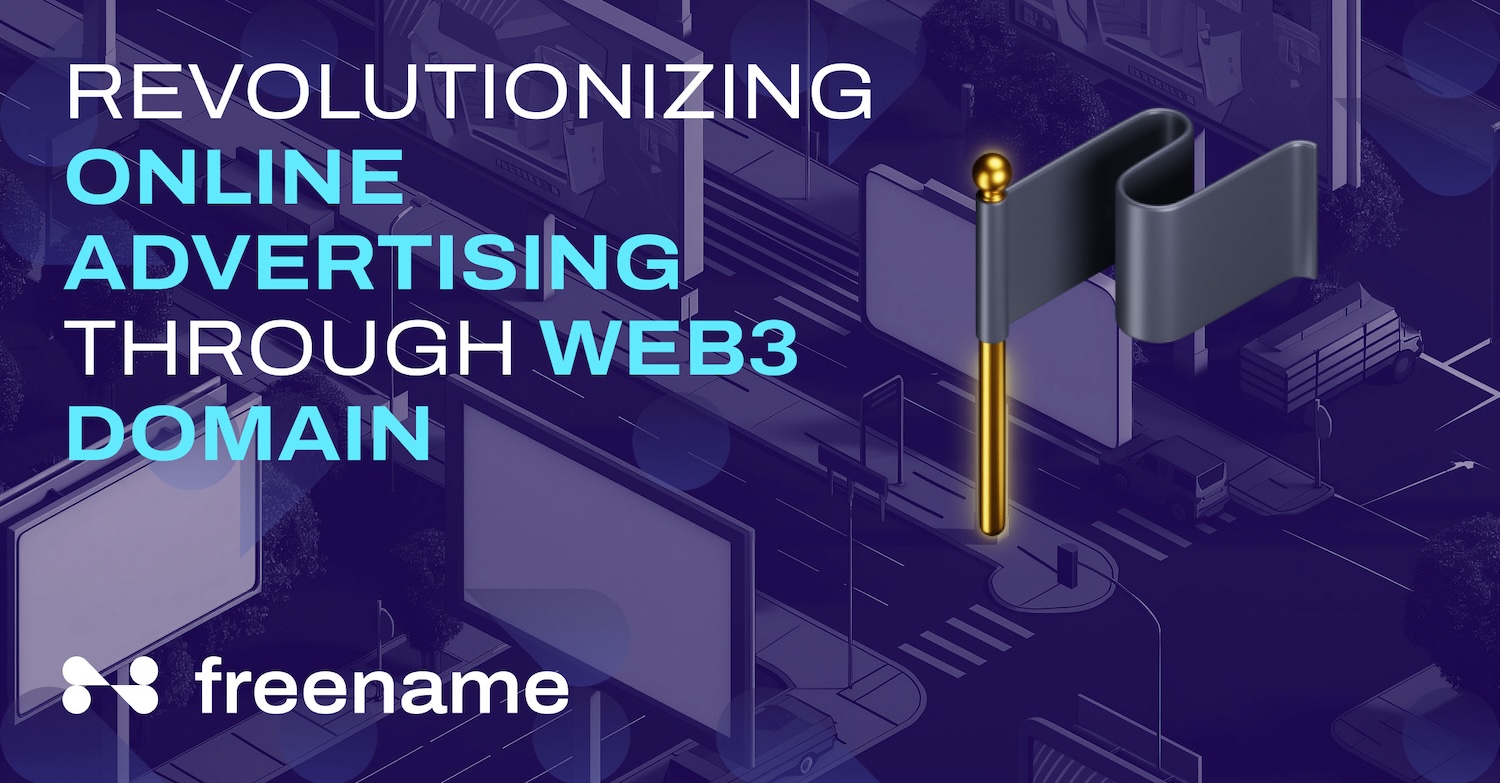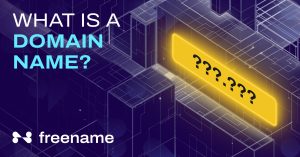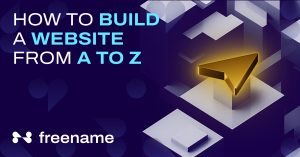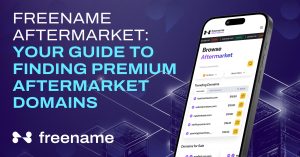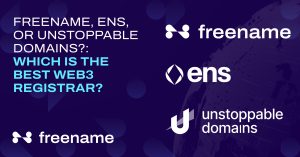Since its explosion in the early 1990s, online advertising has advanced significantly. With Web2 giving us giants like Google and Facebook that gather a lot of user data and allow advertisers to display highly targeted ads, we’ve gotten some efficiency in advertising efforts.
However, the grave privacy concerns and concentrated power in the hands of those tech giants that followed couldn’t be ignored. As a result, the online advertising sector suffered from a lack of confidence since consumers often thought that their personal data was being used for commercial purposes.
Web3, however, has now set the stage for yet another online advertising revolution. And this one comes with improved privacy, a more transparent advertising economy, and greater control over one’s data using Web3 domains. This new change establishes a more trustworthy and balanced connection between advertisers and consumers by giving users the choice to decide when and how much data to provide.
In this article, we will look into the specifics of how Web3 domains will change online advertising to make it more user-centric, safe, and generally better.
The Benefits of Web3 Domains in Online Advertising
Web3 domains differ mostly from regular domains in their ownership structure and underlying technologies. Web3 domains decentralize control in a way that no central authority can take your domain away from you; you own it wholly, forever and without renewal fees.
This also signifies a shift in the administration of online advertising and the variety of campaigns that can be developed, along with several added benefits that cannot be dismissed.
Enhanced User Privacy and Data Security
The improved security and privacy Web3 domains provide to customers is one of its key benefits in online advertising. Conventional internet advertising mostly depends on gathering and evaluating enormous volumes of user data—often without the users’ express permission. Due to this centralized data collection, users run the risk of data breaches and serious privacy concerns.
But Web3 domains give consumers control over their personal data. Users’ ability to decide what data to share, with whom, and for how long ensures a more private and secure browsing experience.
This move toward user-controlled data and increased trust between customers and advertisers results in better and more polite advertising tactics.
Decentralized Ownership and Control
Web3 domains introduce a decentralized model of ownership and control that fundamentally changes the dynamics of online advertising. Big IT corporations manage enormous data networks and set the parameters of advertising in the conventional Web2 model. This centralization often results in unfair practices, such as data monopolies and biased algorithms.
Ownership of Web3 domains is distributed, i.e., no one organization has total control. This democratization allows for open and fair advertising methods. Advertisers can directly interact with their target audience without the need for intermediaries, creating a more balanced and direct advertising ecosystem.
Improved Trust and Transparency in Advertising Transactions
Online advertising depends critically on trust and openness, and Web3 domains are essential to improving these elements. Blockchain technology guarantees that every transaction is transparent and verifiable.
Ad campaigns can be conducted exactly as agreed upon by advertisers using smart contracts, which are self-executing contracts with the contents of the agreement explicitly put into code. This candor lowers the possibility of deception and guarantees advertisers receive what they paid for. Web3 marketing allows privacy-preserving data collection, meaning your information is shared only with your consent. This setup ensures that your data stays safe and your privacy is respected.
Users can also check how their data is being used and paid for, which promotes more direct and honest communication between advertisers and customers.
Enhanced User Consent Mechanisms
With Web3 domains, giving consent isn’t just a checkbox you click without thinking. It’s a clear, straightforward process. Using smart contracts and decentralized applications (dApps), you can explicitly control how your data is used.
These tools ensure that every agreement is fair and transparent, and they automatically enforce the terms. You know exactly how your information is being used, which builds trust.
This makes you more likely to engage with ads, knowing your privacy is safeguarded and your consent is genuinely respected.
Web3 Monetization in Online Advertising
Web3 domains have enable token-based reward systems, where users are incentivized to engage with ads or share their data. Advertisers can distribute tokens as rewards for watching ads, providing feedback, or participating in surveys. These tokens can be used within the ecosystem for various services or even converted into other forms of currency.
It’s a win-win: advertisers get your genuine engagement, and you get rewarded for your time and attention.
Content Monetization
Traditional content monetization has also become a big deal over the last decade and with Web3, creators don’t have to rely on intermediaries to earn from their content. Instead, they can directly monetize their digital content through microtransactions.
If you’re one, your fans can pay small amounts of cryptocurrency to access your premium content or remove ads. It also means that you have the power to set the terms of your content’s use and distribution and that guarantees that you’re fairly compensated for your creativity and effort.
| By purchasing a Web3 domain on Freename and becoming a reseller, you can earn royalties on every domain registered under your TLD. This can be up to 50% of the total domain registration fees, automatically distributed to each member’s wallet via the freename.net system. Discover more and embark on your Web3 domain journey with Freename today! |
Decentralized Autonomous Organizations (DAOs)
What DAOs do is provide a decentralized framework for you to manage your advertising campaigns. DAOs use smart contracts to automate decision-making processes and in advertising, they manage funds transparently, vote on campaign strategies, and distribute rewards that have been predefined.
Case Studies of Successful Advertising Campaigns
Brave Browser and BAT (Basic Attention Token)
Brave Browser uses the BAT token to reward users for viewing ads and publishers for creating quality content. The advertising platform operates through a DAO that manages the distribution of BAT tokens. Their users are directly compensated for their attention, and advertisers benefit from higher conversion rates.
SuperRare’s NFT Art Marketplace Promotion
To draw in artists and consumers, SuperRare, an Ethereum NFT art marketplace, teamed with a Web3 marketing firm. The ad centered on presenting the platform’s chances for investing in uncommon NFTs and selling digital art. They leveraged several Web3 influencers and came up with their own social media marketing and virtual events to increase their user base and sales volume significantly. This immediately cemented SuperRare’s status as a top NFT art market.
Uniswap’s Marketing Campaign
When Uniswap launched their marketing campaign, the goal was to increase user adoption and liquidity provision. Their DAO voted on several marketing proposals and allocated funds accordingly.
The DAO-managed campaign achieved these goals and the community-driven approach ensured that marketing efforts were aligned with the interests of Uniswap users and stakeholders.
Challenges and Limitations of Web3 Domains in Online Advertising
Though it won’t be easy, Web3 domains are likely to completely transform online advertising. However, there are some limitations that web3 domains already face.
Technological and Scalability Issues
First up, we’ve got the tech side of things. Web3 domains are built on blockchain technology, which is pretty solid, but it’s not without its quirks. The blockchain is like a growing digital ledger, and as it grows, it can get heavy.
This means we might run into issues with scalability—how well the system can handle a growing amount of work or its potential to expand. We need to make sure Web3 domains can handle the crowd.
Regulatory and Compliance Concerns
Web3 is still new and relatively unregulated. As governments and institutions try to figure out how to fit this new technology into existing frameworks, there is a lot of uncertainty. For businesses and advertisers, this can be a bit of a headache as they try to adhere to compliance laws.
Adoption Barriers and Resistance from Traditional Stakeholders
Lastly, change can be tough, and not everyone’s on board with it. Traditional stakeholders in the advertising world might be resistant to adopting Web3 domains. It’s a bit like trying to convince someone to trade their old, comfy shoes for a new pair. They might be better, but the old ones are familiar. Overcoming this resistance and demonstrating the value of Web3 domains is crucial for widespread adoption.
Web3 Domains Are Shaping the Future of Online Advertising
Web3 domains have introduced us to a world where advertisers and consumers can interact directly, where content monetization is fair and transparent, and where personal data is treated with the respect it deserves.
The implications for online advertising are profound: ads become more relevant, engagement becomes more meaningful, and the entire experience becomes more rewarding.
The landscape of Web3 is ever-changing. So you should keep your finger on the pulse of new developments to stay ahead of the curve. Also, the shift to Web3 domains is a significant one. Be open to new ideas and ways of interacting with online content and ads.
Web3 Domains And Advertising: FAQs
How will Web3 affect digital marketing?
It will improve transparency, security, and user control over data by improving ad metrics and reducing fraud. Web3 also introduces new advertising models, like tokenized incentives and NFTs, that offer unique engagement opportunities. There will also be community-driven decisions through DAOs that align marketing campaigns with consumer interests.
What impact does Web3 have on the future?
Web3 will increase security, privacy, and openness by decentralizing control. It will help decentralized finance (DeFi) make financial services more easily available and also improve privacy protection for user-owned digital identities. Smart contracts and decentralized apps (dApps) will also simplify procedures and encourage creativity that will lead to new business models.

